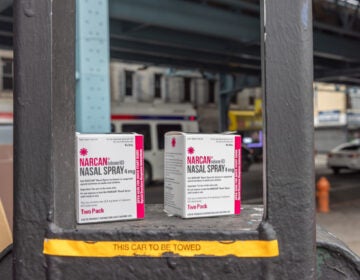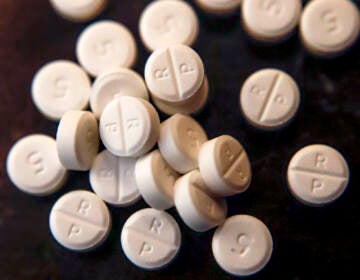UPDATE: Bacteria spurs N.J. beach closures
UPDATE: As of Thursday afternoon, seven beaches — all in Atlantic City — are closed, and none are under a swimming advisory. Closures issued Wednesday for areas of Ventnor, Somers Point, and some in Atlantic City were discontinued.
Original report: 31 beaches at the Jersey Shore are under swimming advisories issued Tuesday while an additional three are closed due to bacteria.
According to the state Department of Environmental Protection’s njbeaches.org, the advisory covers ocean, bay, and river beaches in Monmouth, Ocean, Atlantic, and Cape May counties and closures are impacting beaches along the Toms River in Ocean County due to water samples exceeding a quality standard.
Click here to view the complete list and map.
The standard for the acceptable level of enterococcus, a bacteria found in the intestines of warm-blooded animals that can cause urinary tract infections, bacteremia, bacterial endocarditis, diverticulitis, and meningitis, is 104 colonies per 100 ml of water.
All bacteria levels were above the maximum bacteria standard when tested Tuesday morning.
Some beaches, like the Maryland Avenue beach in Point Pleasant Beach, registered a reading just over the threshold at 110 colonies and is under a swimming advisory, while others, like the Summit Avenue beach in Island Heights, reported a count of 1,800 colonies.
Some waterways are typically susceptible to higher bacteria levels after rainfall and associated storm runoff. Heavy rain has moved through the Jersey Shore in recent days.
Onshore flow, which has occurred in recent days, also pushes in offshore water and keeps near-shore water from flowing adequately out to sea.
The state tests water quality at 35 bay and 180 ocean locations and issues advisories one day following an unacceptable bacteria level. Beaches are closed if two consecutive samples collected at a bathing beach exceed the state standard and remain in effect until subsequent sampling indicates bacteria levels are again below the standard, according to the DEP.
WHYY is your source for fact-based, in-depth journalism and information. As a nonprofit organization, we rely on financial support from readers like you. Please give today.




